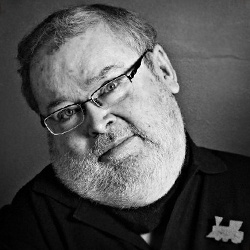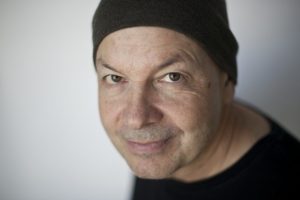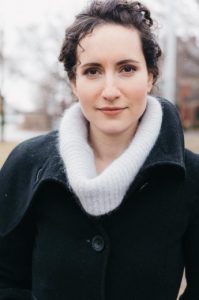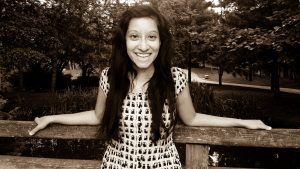BY CHARLOTTE DRACOPOULOS
The Freelancer’s Guide to Survival and Success panel opened audiences’ eyes to the world of freelance writing. Last weekend at the Word On The Street Toronto festival four freelancers talked for an hour about the ins and outs of the industry, providing valuable knowledge to those aspiring to become freelance writers. The panel was a part of the Careers in Canadian Magazine stage that ran from 10 a.m. to 5 p.m.
The WOTS Toronto festival is a “non-profit organization the celebrates Canadian reading, writing, and champions literacy, primarily through a free, annual outdoor festival,” according to their website. It offers author readings, panels, and a marketplace with a selection of Canadian books and magazines. The goals of the festival are to promote Canadian publishers, authors, and booksellers, as well as raise awareness and support literacy programs.

Stephen Trumper, who mediated the panel, is an independent writer and editor. He has been teaching at Ryerson’s School of Journalism since 1995 and currently writes for Abilities magazine. During the course of the one-hour discussion, he questioned the three panellists on what their experiences as freelancers has been like. As well as what advice and tips they had for people trying to become freelance writers.
One of the panellists, David Hayes, is an award-winning journalist and ghostwriter. He teaches Advanced Feature Writing at Ryerson University and in the University of King’s College’s Creative Nonfiction MFA.
Hayes, when describing how he launched his career in freelance journalism said, “there wasn’t really much thought on how to build my career.

It was really just doing it, trying to get work and hoping I can get more work.”
Hayes’ advice to freelancers is “always ask for more. Even if you’re not going to get more you may be able to negotiate something else around more.”
“I’ve done things like negotiate to get research help for a research project, so an intern was assigned to do some research for me so I didn’t have to do it all,” said Hayes.
Another tip Hayes gave to the audience was to “diversify. To do something else…use it towards your transferable writing skills, the ones you use for journalism, for poetry or whatever it is you are doing.”
Flexibility is an important part of being a freelance journalist and it is a skill freelancers will frequently need to use.
Sarah Barmak, a panellist, is a Canadian freelance journalist who writes about sexuality, gender and women’s health. She also teaches journalism at The University of Toronto’s Munk School of Global Affairs.

“I never thought I was going to be a writer,” she said, “I was going to become an academic. I went to the [University of Toronto] and I started reading the student newspapers there.”
She ended up becoming an editor for The Varsity, UFT’s student newspaper. “I was editor in chief in my last year and I found the experience so awesome and so enjoyable,” said Barmak.
“I would advise that you write for your student newspaper because a lot of them are actually known by name to editors at major newspapers and magazines,” she said.
Another tip she gave to the audience was to utilize social media. “If you have a strong voice, maybe you’re an essay writer, social media is a fantastic way of developing your voice, testing out ideas, of seeking an audience,” Barmak said.
“I know reporters who freelance who would just cover stuff, they would go to city council meetings and they would tweet out their coverage even if they weren’t employed by anyone. Then eventually people took notice,” she added.
Pitching stories to editors is another skill freelancers will need to hone. Part of sharpening that skill is “researching a pitch really well, and also research the publication you are pitching to,” said Barmak. “Tailor the pitch to the specific publication you are thinking of pitching to and explain why they and their audience would want to read your story.”
She suggested freelancers find a way to build security into their pitches, “what I mean by that is not to give away the names of all your subjects, emphasize that you have exclusive access to your story and explain why you’re the person to write this story.”
When asked what the career of a freelancer is like Barmak said, “there’s a lot of downsides to being a freelance writer, you don’t have benefits, you’re not really sure where your money is coming from but there are a lot of pleasures as well. And freedom is a huge one for me, freedom to work when I want.”
“Early on I realized I didn’t want to focus on any one thing for a while,” she said. “I was just super curious about everything and I loved the freedom of not defining myself too quickly early on.”
When Hayes was asked to describe what it’s been like as a freelancer, he said, “I found it to be an unbelievable satisfying, exciting, interesting career. I’ve travelled a lot and when I travel with a story I almost always built an extra week into where I went.”
Doyali Islam, who was also on the panel, is the poetry editor of Arc and editor of The Writers’ Union of Canada’s Write magazine.

When asked how she measures success in freelancing she said, “I like to think about value rather than straight income, so there’s an emotional value to my work as an artist, an energetic value, a social value, a political value, all these things intersect.”
“As an editor, I feel like my focus is on editorial relationships,” said Islam, “I’ve created an important relationship that goes beyond that piece of work and it’s about valuing someone as a human not just what they’re offering to the magazine.”
Her advice to freelancers is to, “just go for what you want, don’t think you’re not good enough for a certain magazine, just try, you really have nothing to lose.”
